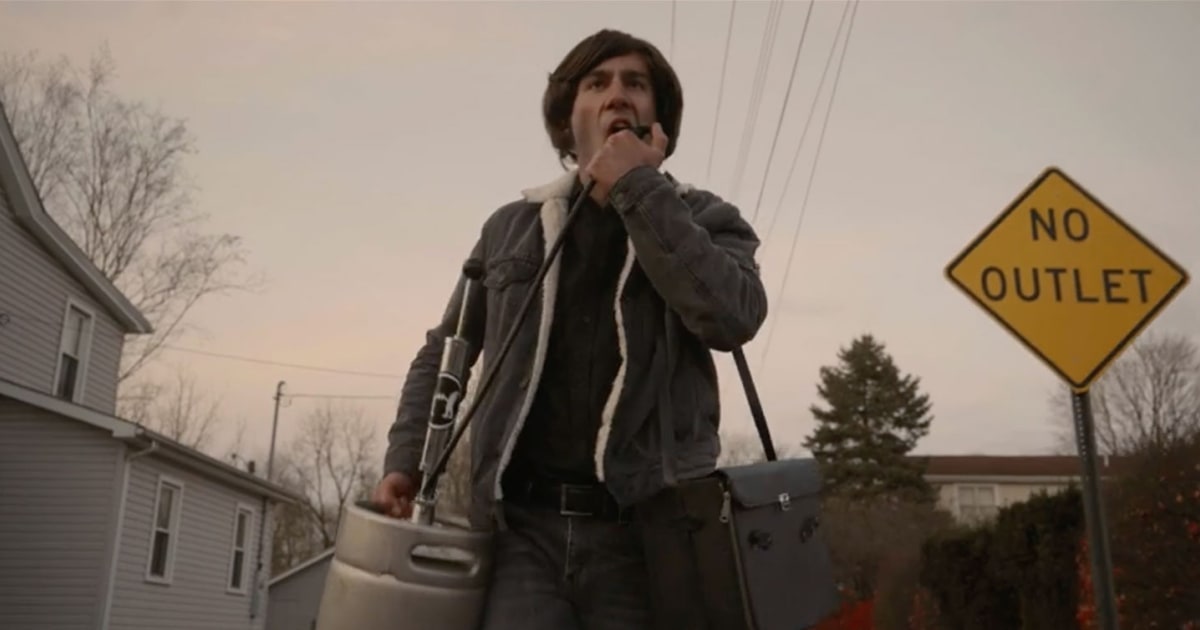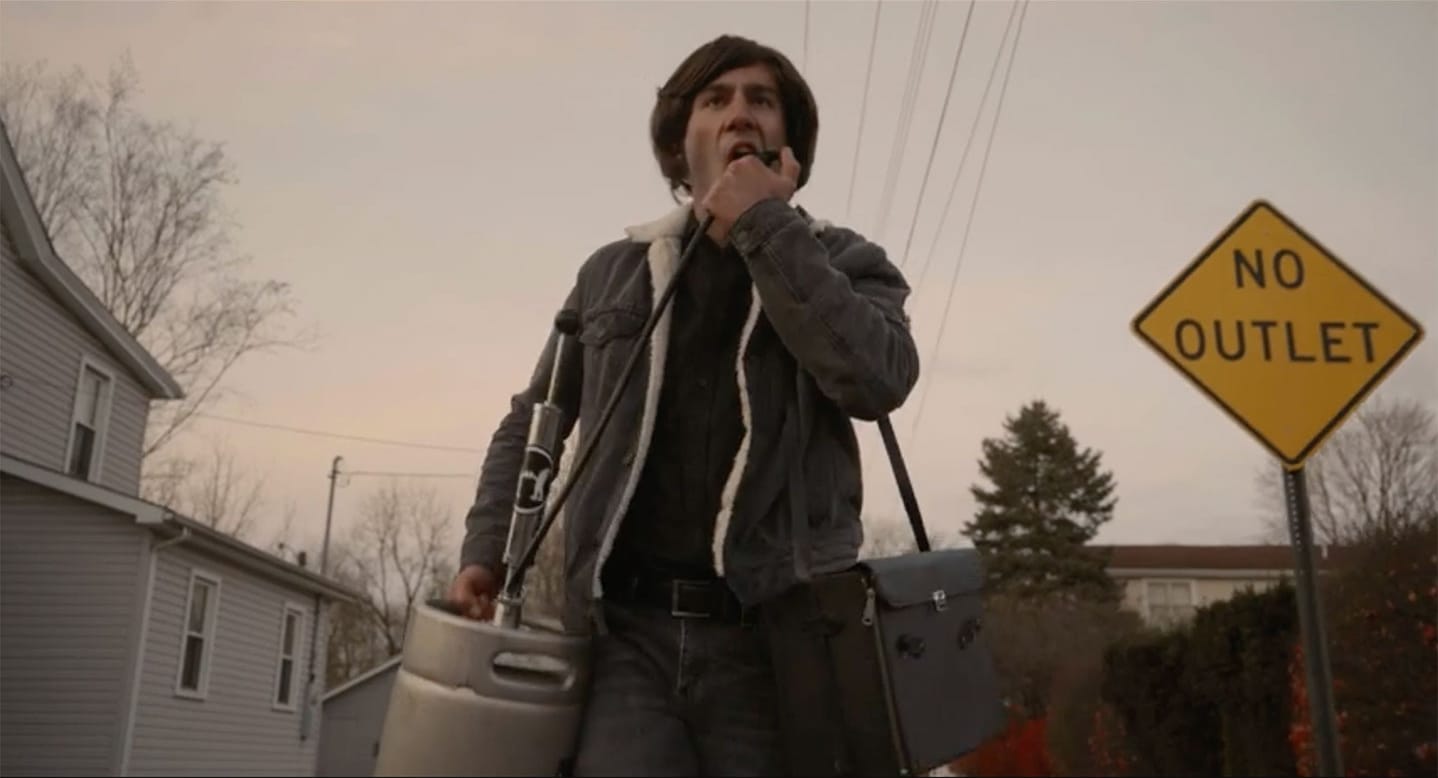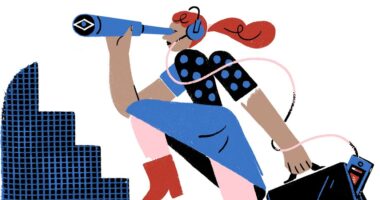
For her remake of “Ferris Bueller’s Day Off,” filmmaker Marissa Chastain didn’t have the big bucks that the original production spent on replica stunt cars for the famous scene in which parking attendants take a 1961 Ferrari 250 GT California Spyder for a joyride.
Having lost her jobs as a comedian and yoga instructor during the Covid-19 pandemic, the most the 36-year-old Chicago resident’s budget allowed for was a $9 remote-controlled toy.
What she did have was two roommates willing to be her co-directors and cast, access to the same Windy City locations as the original and a sense of humor. The latter proved the most important to secure one of the 11 finalist spots in The Sweded Film Festival for Creative Re-Creations.
“We have this desperation to create,” Chastain said. “The pandemic definitely made that clear amongst the three of us, that no matter what, we’re still here creating — even if there’s no money behind it, it’s something that drives us as humans.”
Now in its fourth year, the Sweded Film Festival for Creative Re-Creations is a celebration of homemade versions of cinematic classics. Among the other screened shorts that trade CGI for duct tape and cardboard are loving recreations of “Air Force One,” “Die Hard” and “No Country for Old Men.” For this installment, the Pittsburgh-based festival has gone national and virtual, both as a concession and an opportunity born from the pandemic.
Even if this film festival doesn’t exactly carry the prestige of Cannes or Sundance, there’s a serious cause behind those ridiculously cheap production values.
Half of the $3.99 ticket price for the virtual screenings beginning Feb. 12 will go toward relief for participating independent theaters devastated by the economic fallout from Covid-19.
“It is about relieving the pent-up demand,” said Brian Mendelssohn, owner of Row House Cinema in Pittsburgh and the festival’s founder. “The fact that we can’t really go to the movies, enjoy the movie experience and love movies the way we traditionally love them — this is an outlet for people to enjoy film even though they can’t watch film in a movie theater.”
Mendelssohn, whose theater has been shuttered during the pandemic, had some success raising money for the cause last June with the Quarantine Cat Film Festival. That screening of cat videos raised $75,000 for participating independent theaters, he said, with the same 50-50 split of the take.
Every dollar counts right now for those theaters. Only 35.4 percent of the 6,037 movie theaters across North America are currently open, according to Comscore, a media analytics company.
Those able to keep their doors open are far from thriving. Studios have repeatedly bumped big-budget flicks, which drive moviegoers into theaters, either to later release dates (like the Bond movie “No Time to Die”) or straight to streaming (“Wonder Woman 1984”).
The domestic box office plummeted 81 percent in year-to-year returns from 2019 to 2020, the National Association of Theatre Owners reported. Losses have ranged from 70 to 100 percent, depending on the location and state restrictions, a spokesman for the trade organization said by email.
The longer the pandemic drags on, the greater the possibility many independent theaters will not reopen.
“The owners of these independent theaters have a deep love and affection for movies but not necessarily deep pockets to withstand the devastating impact that the pandemic has had on the industry,” said Paul Dergarabedian, senior box office analyst for Comscore. “They don’t have the kind of financial fundamentals that will allow for them to lay dormant for months at a time.”
The first Sweded Film Festival launched in 2016, two years after Mendelssohn opened Row House Cinema.
“When we opened up a movie theater in 2014, we showed primarily older films, and a lot of them didn’t have trailers or the trailers were really out of date,” Mendelssohn said. “So we just kind of made our own trailers after a little while, just with the staff as actors.”
The inspiration came from the 2008 Michel Gondry-directed comedy “Be Kind Rewind,” starring Jack Black and Mos Def as video rental store clerks forced to re-create scenes from the movies they accidentally erased. The term “Sweded” comes from a joke in the movie as customers are told replacement VHS tapes are en route from Sweden.
“Then our audience kind of wanted to get in on the act,” Mendelssohn added, “so we decided to just go ahead and do a little little contest.”
A total of 17 theaters in 13 states have signed up to screen this year’s Sweded Film Festival, though organizers expect the number to surpass 100 by Feb. 12.
One of the participating theaters, the historic Lincoln Theatre in Mount Vernon, Washington, has a rooting interest. Manager Roger Gietzen’s version of “Stop Making Sense” is one of the finalists.
Filmed with real instruments, the 3-minute, 45-second film is an ode to the 1984 concert film — only with googly eyed cardboard cutouts taking center stage instead of the actual Talking Heads.
“I don’t think we had all met together as a staff except via Zoom in the 10 months before we shot the video [in December],” Gietzen said. “So everyone was just thrilled.”
The cutouts were part of a previous fundraising initiative at the Lincoln Theatre, in which patrons sponsored cutout versions of themselves to be seated in the audience during live concerts filmed at the venue and shown virtually. With the theater closed since March 9, Gietzen and his staff, many of whom were furloughed earlier this month, need to be creative to stand a chance of returning.
Gietzen said the gate from the Sweded Film Festival won’t solve the theater’s financial problems by itself, but it has an equally important function.
“I’m hoping the audience is just going to see the joy that went into making these films,” Gietzen said. “To see how dedicated we all are.”
Source: | This article originally belongs to Nbcnews.com










